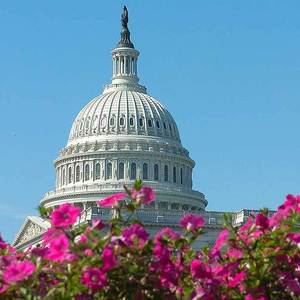Waiting for the Signal to Change

PHOTO: STOCK
June 14, 2021
BY The National Biodiesel Board
The Biden administration delivered some positive news to the biofuel industry in February, announcing a change in stance on small refinery exemptions under the Renewable Fuel Standard. EPA agreed with the U.S. Court of Appeals for the 10th Circuit that exemptions should be limited. And in April, the agency explained its new position in depth to the U.S. Supreme Court as it weighed the issue.
NBB filed its own amicus brief for the Supreme Court proceedings, detailing how small refinery exemptions especially harm the biodiesel industry.
“Biodiesel and renewable diesel producers appreciate EPA’s recognition that exemptions are only temporary mechanisms to transition small refineries into the RFS program,” said Kurt Kovarik, NBB’s vice president of federal affairs. “Continued misuse of small refinery exemptions is a direct threat to the U.S. biodiesel and renewable diesel industry and the 65,000 U.S. jobs and more than $17 billion in annual economic activity it supports.”
Then in May, EPA asked the 10th Circuit Court to vacate 2018 and 2019 exemptions granted to two Sinclair oil refineries, pointing out that they were inconsistent with that court’s previous ruling. However, EPA still must decide on 66 pending small refinery exemptions and outline how it will account for any potential exempted volumes in future rules.
In other announcements from the administration, the signals for the biodiesel industry were mixed. President Biden’s American Jobs Plan made no mention at all of biofuels.
Rep. Cindy Axne (D-IA) noted the absence in an April letter to House leaders. “Although many portions of the American Jobs Act will provide the support and investments that are much needed for the Iowans I represent, I was disappointed that biofuels was not included in the initial framework laid out by the Biden Administration,” she wrote. Rep. Axne and other biodiesel industry champions, including Sen. Chuck Grassley, are working to include support for the biodiesel industry as Congress begins to write legislation to enact the jobs plan.
Biden administration officials have also indicated strong support for sustainable aviation fuel but in some instances may have their signals crossed. In a May House Appropriations Subcommittee on Energy and Water Development hearing, Energy Secretary Jennifer Granholm seemed to misstate that support. “We see biofuels playing a big role and we think that those refineries can be producing and should be producing aviation biofuels right now,” she told Congress members. “It is not much to retrofit a biofuel refinery to be able to produce aviation fuel.”
NBB welcomes support for domestic production of sustainable aviation fuel on par with support for continued growth of biodiesel and renewable diesel. NBB continues to educate members of Congress and the Biden administration on biodiesel’s role in supporting economic, climate and clean air priorities.
Advertisement
Advertisement
Related Stories
The U.S. EPA on July 8 hosted virtual public hearing to gather input on the agency’s recently released proposed rule to set 2026 and 2027 RFS RVOs. Members of the biofuel industry were among those to offer testimony during the event.
The USDA’s Risk Management Agency is implementing multiple changes to the Camelina pilot insurance program for the 2026 and succeeding crop years. The changes will expand coverage options and provide greater flexibility for producers.
EcoCeres Inc. has signed a multi-year agreement to supply British Airways with sustainable aviation fuel (SAF). The fuel will be produced from 100% waste-based biomass feedstock, such as used cooking oil (UCO).
President Trump on July 4 signed the “One Big Beautiful Bill Act.” The legislation extends and updates the 45Z credit and revives a tax credit benefiting small biodiesel producers but repeals several other bioenergy-related tax incentives.
CARB on June 27 announced amendments to the state’s LCFS regulations will take effect beginning on July 1. The amended regulations were approved by the agency in November 2024, but implementation was delayed due to regulatory clarity issues.
Upcoming Events










